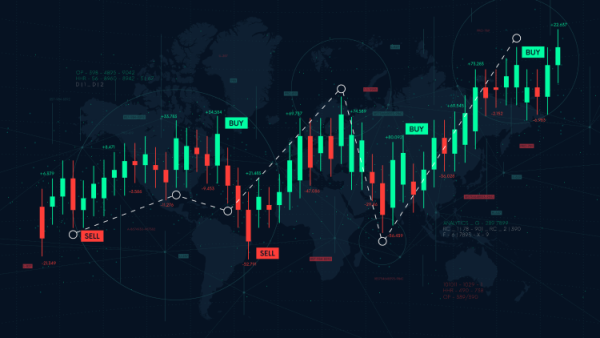Trading is a pivotal activity in the global economy, encompassing a wide range of transactions that generate income for individuals, businesses, and nations. Understanding what income from trading comprises—and how it is generated—can provide valuable insights into the mechanics of financial markets. This article explores the various dimensions of income from trading, the types of trading activities, and their impact on economies and individuals.

What is Income from Trading?
Income from trading refers to the profits or returns obtained through the buying and selling of financial instruments, commodities, or other assets in markets. This income is typically derived from short-term price fluctuations, as traders aim to capitalize on market dynamics for financial gain.
Income from trading can come in various forms, including:
- Capital Gains: This is the most common form of income from trading. It occurs when an asset is sold for more than its purchase price. For example, if a trader buys a stock for $50 and sells it for $70, the capital gain is $20.
- Dividends: Certain assets, especially stocks, may provide regular income through dividends, which are distributions of earnings paid to shareholders. While dividends aren’t a direct result of trading, trading stocks that pay dividends can contribute to overall income.
- Interest: Traders in the forex market or those who deal in fixed-income securities may earn interest income. This is relevant when a trader holds positions overnight and earns or pays interest based on the interest rate differential between two currencies.
- Options Premiums: Traders who engage in options trading can earn income from the premiums received when selling options contracts. If the options expire worthless, the trader keeps the entire premium as profit.
- Commissions and Fees: Some traders, especially those who work for brokerage firms, may earn income through commissions and fees based on the volume of trades executed for their clients.
Types of Trading
- Stock Trading: This involves buying and selling shares of publicly listed companies. The income generated may come from capital gains and dividends.
- Forex Trading: In the foreign exchange market, traders buy and sell currency pairs. Income is derived primarily from capital gains due to fluctuating exchange rates, as well as interest income from holding positions.
- Commodity Trading: Traders exchange physical goods like oil, gold, and agricultural products. Similar to stock trading, income is generated from capital gains, as well as potential rental income from commodities stored.
- Cryptocurrency Trading: With the rise of digital currencies, trading in cryptocurrencies has become increasingly popular. Income is largely derived from capital gains due to the volatile nature of crypto markets.
- Derivatives Trading: This includes options and futures contracts, which derive their value from underlying assets. Traders can earn income by speculating on price movements or hedging their portfolios.
Impact of Trading on Income Generation
Income from trading can drive economic growth, influence investment strategies, and contribute to individual wealth accumulation in several ways:
- Liquidity Provision: Trading enhances market liquidity, allowing buyers and sellers to transact with ease. This fluidity encourages investment and can spur economic development.
- Price Discovery: Active trading aids in price discovery, reflecting the true value of assets based on market demand and supply. This can guide investment decisions for businesses and individuals alike.
- Risk Management: Through trading activities—especially with derivatives—individuals and businesses can manage financial risks. By hedging against potential losses, they can
stabilize income flows.
- Employment Opportunities: The trading sector generates numerous jobs, from brokers and analysts to compliance officers, contributing to economic activity and income generation for a diverse workforce.
Challenges and Considerations
While trading can be lucrative, it comes with significant risks and challenges:
- Market Volatility: Prices of traded assets can fluctuate dramatically, leading to potential losses. Traders must be prepared for both gains and losses.
- Psychological Factors: Emotion and psychology play a critical role in trading success. Fear and greed can cloud judgment, leading to poor decision-making.
- Regulatory Risks: The trading landscape is affected by regulatory changes that can impact market operations, trading practices, and income potential.
- Costs and Fees: Commissions, spreads, and other fees can erode potential profits from trading activities. Transparency regarding costs is essential.
Conclusion
Income from trading constitutes a vital component of the financial landscape, providing opportunities for wealth generation at individual and broader economic levels. By understanding the mechanisms behind capital gains, dividends, and other income streams, traders can make informed decisions that optimize their strategies and outcomes. However, navigating the complex world of trading requires a balanced approach that considers both potential benefits and inherent risks. As markets continue to evolve, trading will undoubtedly remain an essential path for income generation in various sectors.












